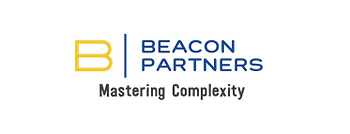Mastering the Art of Balance: Personal and Professional Interactions in Escorting
The profession of escorting demands a unique blend of personal and professional interaction. Escorts often find themselves in situations where the lines between personal and professional boundaries can blur, making it challenging to maintain a clear distinction. Maintaining this balance is crucial not only for professional success but also for personal well-being. This article aims to explore strategies and insights for escorts to effectively navigate and maintain the balance between their personal and professional interactions.
Understanding the Nature of Professional Companionship
The first step in maintaining balance is to clearly understand what professional companionship entails. It’s a service that requires empathy, engagement, and often a semblance of intimacy, yet it’s fundamentally a professional transaction. Recognizing the business aspect of escorting can help in maintaining a professional demeanor during interactions.
Clear boundaries are essential in the world of escorting. It’s important for Buffalo escorts to define what they are comfortable with, both in terms of the services they offer and their emotional boundaries. Communicating these boundaries to clients upfront can prevent misunderstandings and help maintain a professional relationship.
Emotional Intelligence and Detachment
Emotional intelligence is a vital skill for escorts, allowing them to connect with clients while maintaining emotional detachment. It involves understanding and empathizing with clients' emotions without becoming emotionally involved. This detachment is key to preserving one's emotional health and ensuring that professional interactions do not encroach on personal life.
Professional Persona vs. Personal Identity
Many escorts find it helpful to adopt a professional persona - a character that embodies their professional service. This persona is distinct from their personal identity and can act as a buffer between work and personal life. Keeping the professional persona separate helps in clearly demarcating the lines between personal and professional interactions.
Time Management and Scheduling
Effective time management is crucial in maintaining balance. This includes scheduling work hours, allowing time for personal life, and ensuring that work doesn’t spill over into personal time. Having a structured schedule can help escorts compartmentalize their professional and personal lives.
Privacy and Discretion
Privacy is paramount in escorting, both for clients and escorts. Maintaining discretion about professional activities in personal life, and vice versa, is essential. This means being cautious about sharing personal information with clients and keeping work details private from friends and family.
Handling Emotional Transference
Escorts may experience emotional transference, where emotions from client interactions start affecting their personal feelings. Recognizing and managing this transference is important. This could involve debriefing after appointments, engaging in relaxing activities, or seeking support from peers or professionals.
Reflecting and Self-Care
Regular self-reflection can help escorts assess how well they are maintaining the balance between personal and professional lives. Self-care practices, such as hobbies, exercise, and relaxation techniques, are crucial for mental and emotional well-being and can help in decompressing from work-related stress.
Pursuing professional development opportunities can enhance an escort’s skills in managing personal and professional interactions. Workshops, seminars, or counseling focused on boundary setting, emotional resilience, and communication can provide valuable tools for maintaining balance.
Maintaining a balance between personal and professional interactions in escorting is an ongoing process that requires self-awareness, clear boundaries, and effective management strategies. By prioritizing both their personal well-being and professional conduct, escorts can navigate the complexities of their profession successfully. This balance not only ensures a sustainable career but also contributes to a fulfilling personal life, free from the occupational hazards of blurred lines and emotional fatigue.






